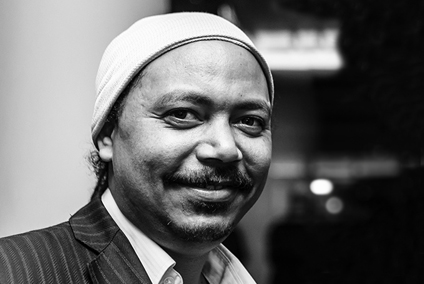At HS2, we want to create the most diverse workforce in British infrastructure – not just in our company but across our whole supply chain. During construction, HS2 will create nearly 25,000 new jobs, including 2,000 apprenticeships. In addition, the major contracts to build and develop HS2 will result in tens of thousands of opportunities for businesses across the supply chain, are we are determined to ensure our major contractors meet the commitments set out in their contracts to promote equality, inclusion and diversity.
In June this year, I had the pleasure of being a panellist at the Annual MCA debate – Diversity: a force for unity in divided Britain? The debate was lively and we received some challenging questions from the audience which eventually meandered into what progressing EDI really meant for the consultancy sector.
I was asked what I thought the foundation of good EDI practice was.
My answer was a “no excuses” culture. When leaders are engaged and held accountable progress happens. Leaders manage people. People are diverse. Good EDI practice is good people practice and the consultancy sector relies on people. Increasingly the consultancy sector will need to rely on a wider range of people as markets become increasingly diverse and more innovative ideas, creativity and insight is needed to distinguish between service offerings.
I was also asked about EDI basics.
One of the basics, I replied, was web accessibility. If your website is not AA accessible you are excluding disabled groups and signalling that your intentions around diversity are not bona fide. If you’re reading this article – why not ask your IT department to confirm your website is AA accessible – and that they had it tested for accessibility?
In addition to the accessibility of both the digital and physical environments, there are other basics of EDI practice. Training, equality analysis of key processes, getting people to participate in EDI related activities and communicating and celebrating EDI successes are all important. So too is being transparent about workforce representation at each level of the organisation.
I was then asked why progress has been so slow.
A strong cultural belief in meritocracy makes change harder. The UK has a strong cultural value around meritocracy. But belief that organisations are operating in a meritocracy often leads them down the path of “fixing the people” – by running more mentoring, more leadership training, more coaching – all designed to “help” diverse groups compete. This usually fails to create any significant shift because the diverse groups still run into the same processes which are proven to create disproportionate negative impact.
The reality is that organisations need to stop trying to “fix” the people as described above.
It doesn’t work.
Women, BAME and disabled groups are ready to be recruited, to be leaders, to shape organisational culture. To facilitate this organisations need to “fix the system” by changing recruitment models, reassessing promotion criteria and working hard to eliminate the effect of bias on selection processes.
HS2 has been a champion of equality, diversity and inclusion (EDI) in recruitment strategies, and sees this as key to getting the best people and developing the most creative solutions. We recently piloted Blind Auditioning, which removes the CV or application form entirely and replaces it with skills based assessment derived from the job description. Utilising the “blind audition” process, shortlisting success for women jumped from 17% to 47%. For BAME groups shortlisting success rose from 14% to 50% – all based on technical competence for the role. By “fixing the system” the change was significant.
For the consultancy sector to make real progress on EDI it also needs to start thinking differently….
Let’s have less meetings and more action. Less initiatives and more fundamental restructure of selection and promotion processes. Less focus on inputs (doing stuff) and more focus on outcomes and change. If your leaders are held accountable for EDI outcomes you might be surprised how much progress can be made in a relatively short space of time.
*The MCA continually strives to diversify and is currently reviewing all communication accessibility

